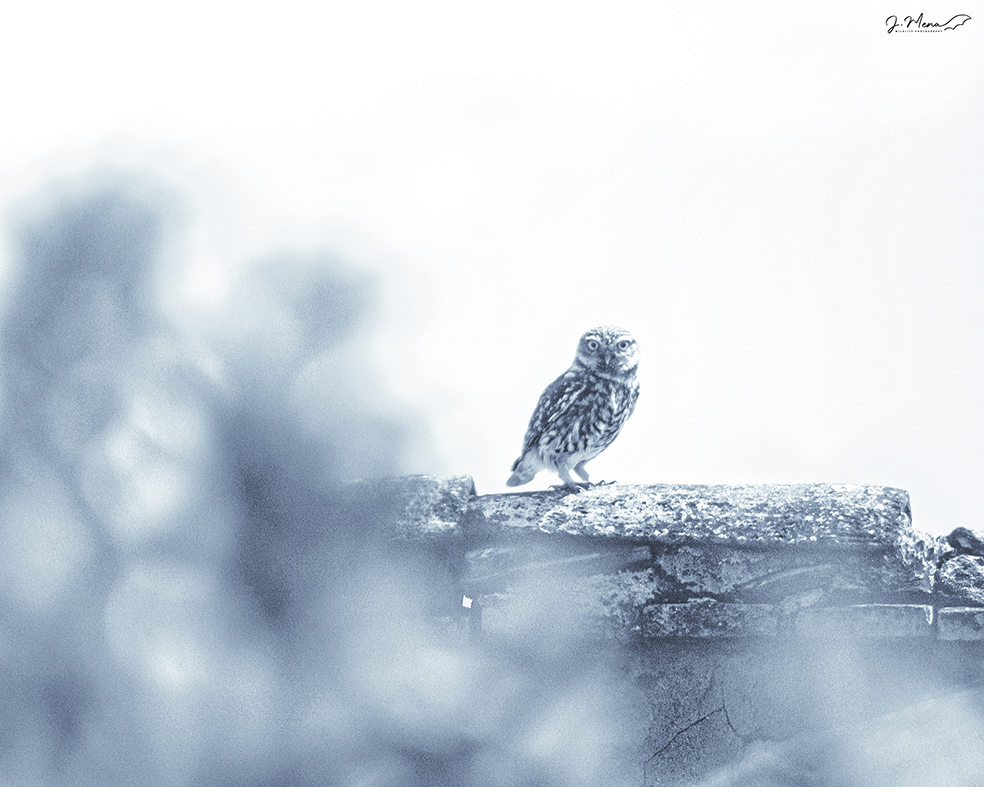Athene noctua

The European Owl (Athene noctua) is a nocturnal raptor that has been part of the Valencian agricultural landscape since time immemorial and for which I have a very special predilection. I still remember the first photographs I took of an owl with my analog film camera in those wonderful and nostalgic pre-digital times. The little animal was on top of a tile, in a small house in ruins, on the Font de Poveda road. The images I got were dark, out of focus and distant, with hardly any documentary value, but of enormous sentimental value for me, which with the passing of time and looking back on it, still makes that feeling stronger, because it was the beginning of which would later be a constant dedication to the search for the species, from which many works have come from each of the photographic sessions that I have dedicated to the solitary and discreet owls.
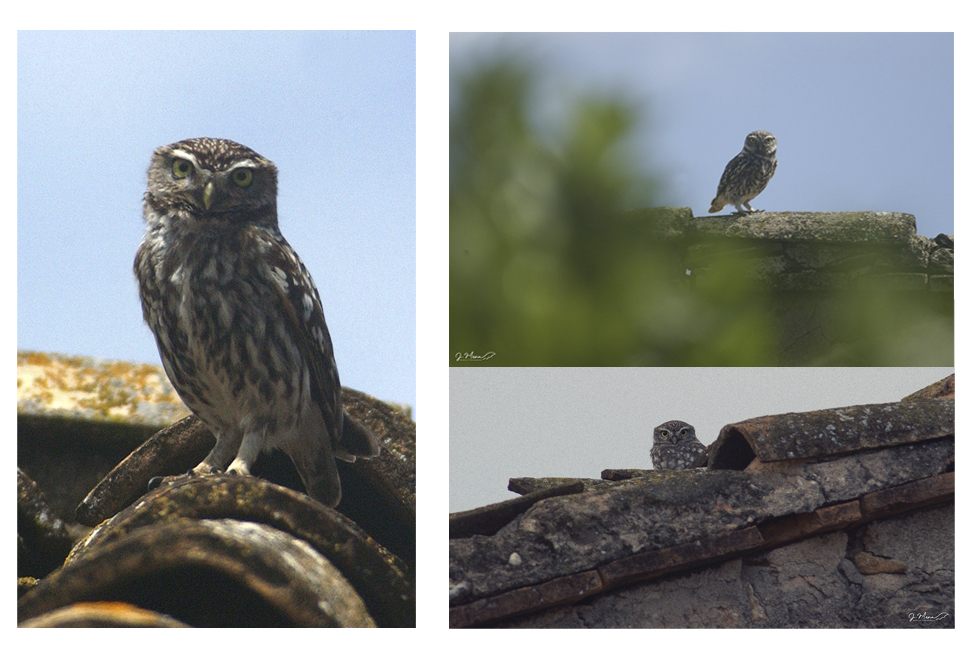
A little larger than a person’s fist, it is stocky in appearance, brown and white, with a wide head and white eyebrows. The tail is short, brown with four transverse stripes. It flies quickly and very wavy, the wings are rounded and it has large yellow eyes.
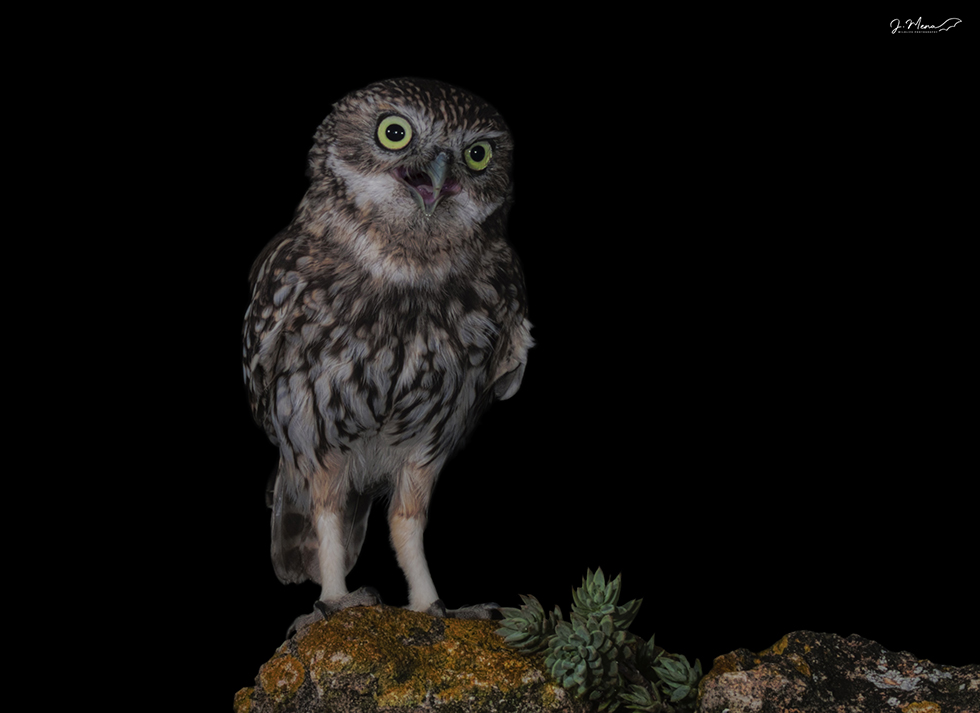
It is abundant in farmland, orchards, open, rocky land with scattered trees, vineyards, olive groves, carob trees, provided that there is a grove, quarry, ruin or uninhabited house. We will also find it in clearings and on clear and sunny forest paths, but it is absent from extensive forests and high mountains. However, we can find it in town parks and gardens.
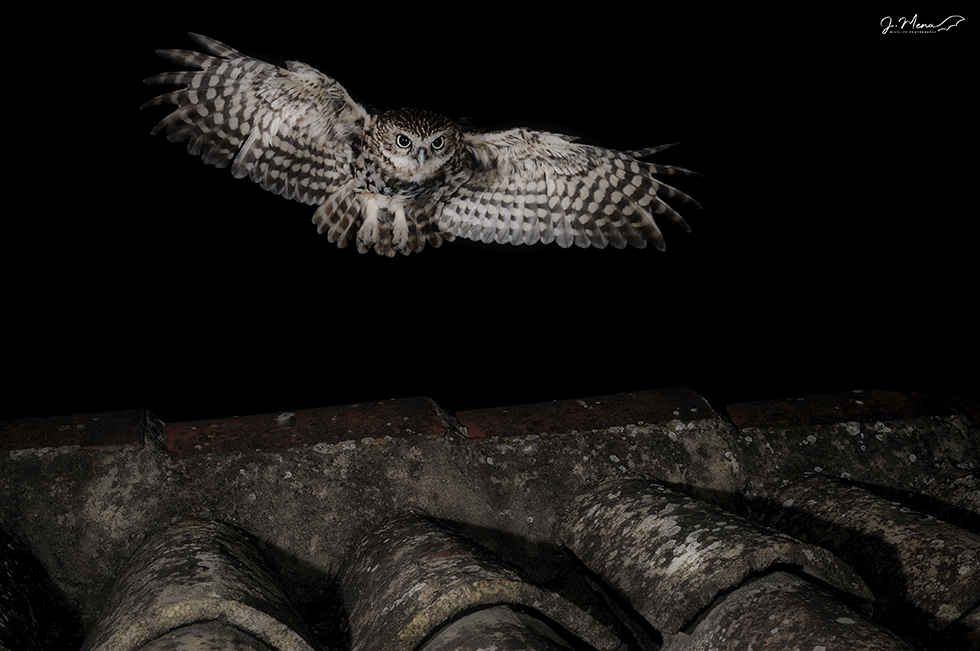
Sedentary bird, it occupies the breeding territory all year round. It makes its nest, at the end of March, in tree holes, stony banks and abandoned houses. The female lays 3-5 white eggs, which she incubates for four weeks, during which time she is fed by the male. The young leave the nest when they are about 35 days old, but they are not fully capable of flying until they are 45 days old.
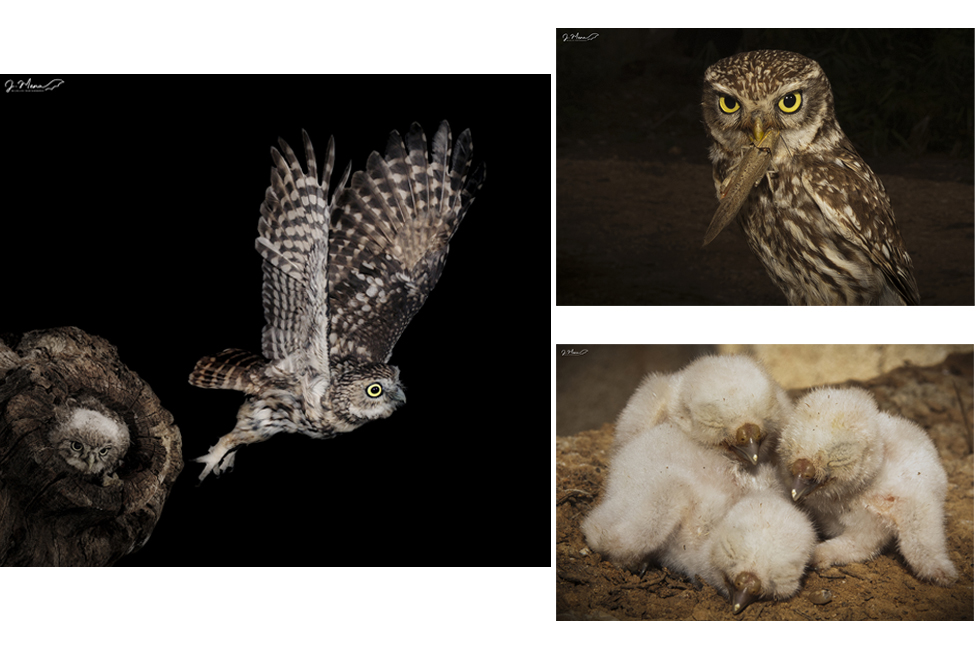
It eats insects (crickets, beetles, grasshoppers, centipedes…), earthworms, mice, birds, frogs and lizards.
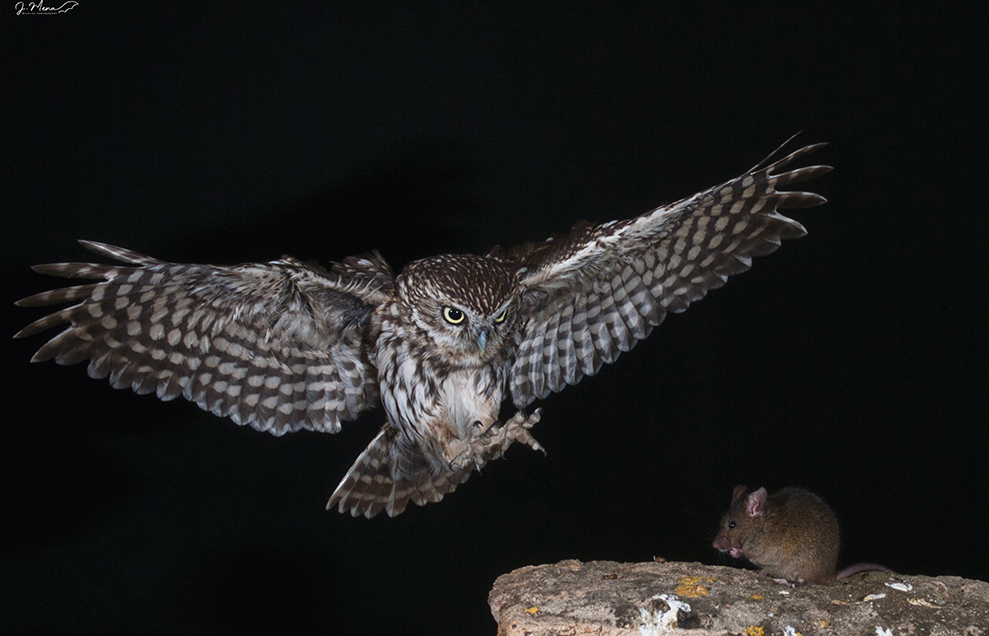
The other day, at dusk, when the owls begin their activity, I was walking along a field of olive trees. I stopped for a while leaning on a margin when I heard a shrill scream, with sharp and strong calls, like a cat, a monotonous meow, which alternated with another sound similar to that of us hissing inwards. Looking up in the distance I can recognize its rounded silhouette placed on the tile of a small country house. I observed it calmly with the binoculars. Despite the certain distance, the little owl turned his head without stopping looking everywhere, apparently scared, while at the same time stretching and shrinking his body, he knew that I was paying attention to him.
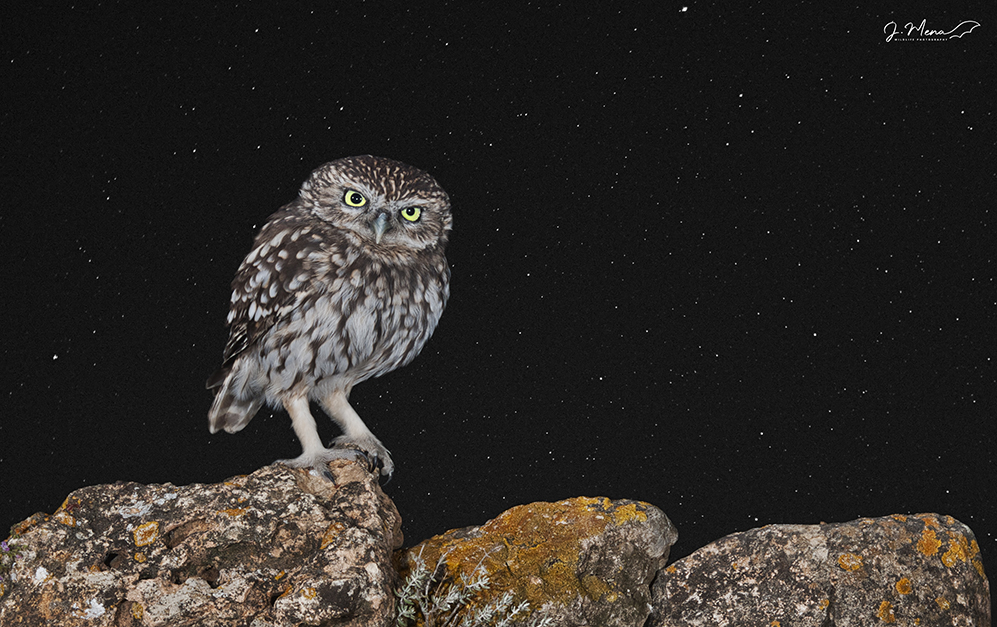
Despite technology and human development, man continues to depend on a natural order that must not be broken, and this has relentlessly entered his habitat. The population of these birds of prey is in an alarming process of decline, and paradoxically, the man who mainly benefits from the action of these animals is his worst enemy, when to cite some examples, he modifies the construction of houses making it impossible nesting, applies harmful substances in the fields (insecticides, herbicides…), clears the croplands making hedges, bushes and other biotopes disappear, modernizes the exploitation of the countryside, plunders nests, makes use of uncontrolled hunting, in addition to casualties due to being run over and electrocuted by power lines.
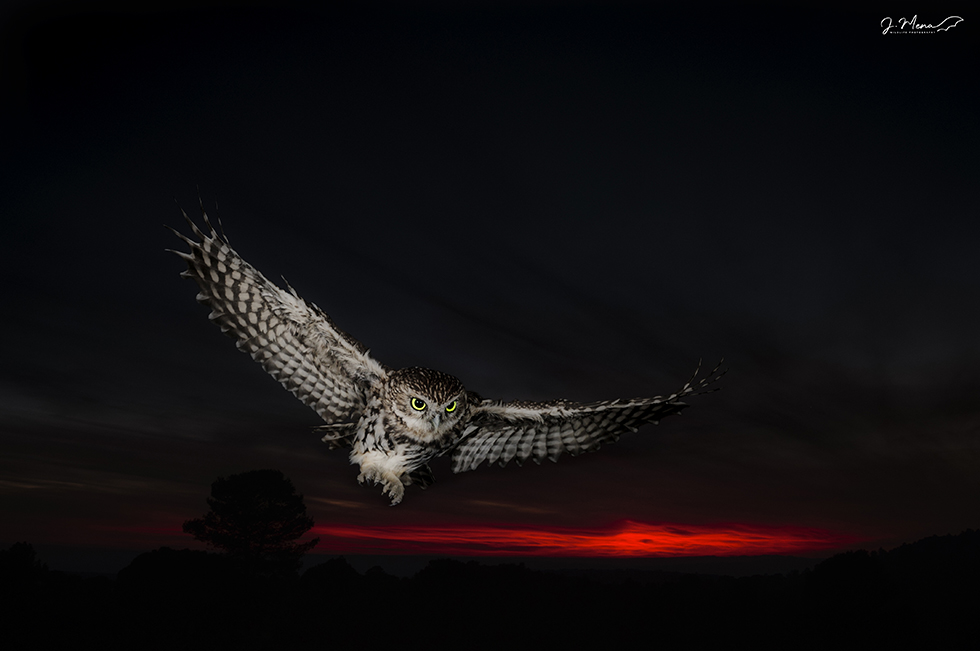
Today we barely hear the hissing of the owls or the hoot of the owls in the ruins and in the countryside. You have to think that something very important will have been lost from our fields when, in the silence of the night, one day their mysterious and wild screams no longer resonate.
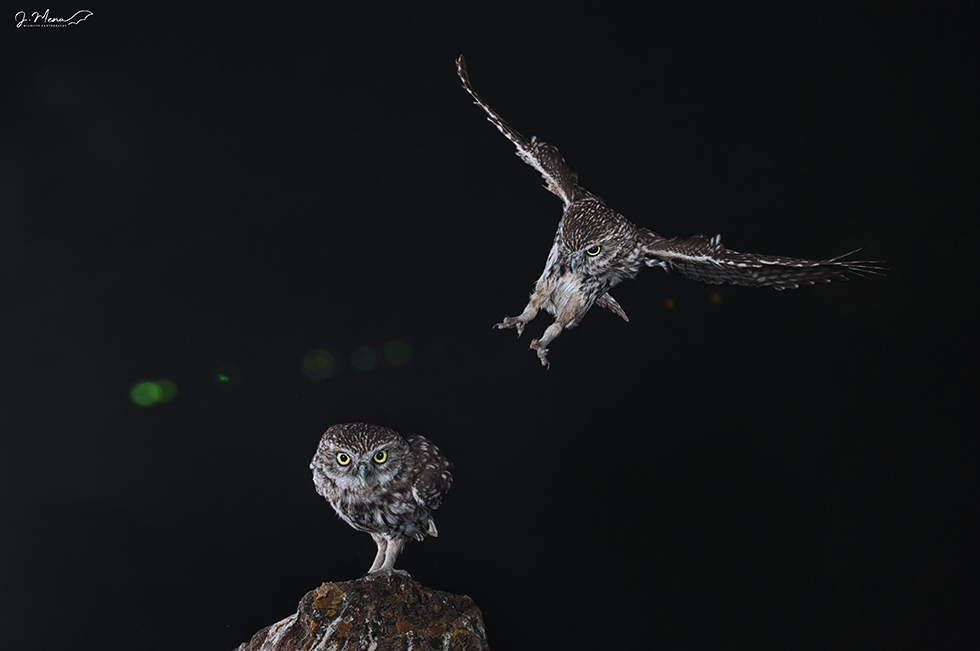
And as a final curiosity, popular culture has also left us a good repertoire of sayings and beliefs about the owl (only n the Valencian language):
– Mussol: persona taciturna (silenciós, melancòlic, solitari, callat…)
– “Cada mussol canta en el seu redol.” (cadascú s’ocupa del seu tros).
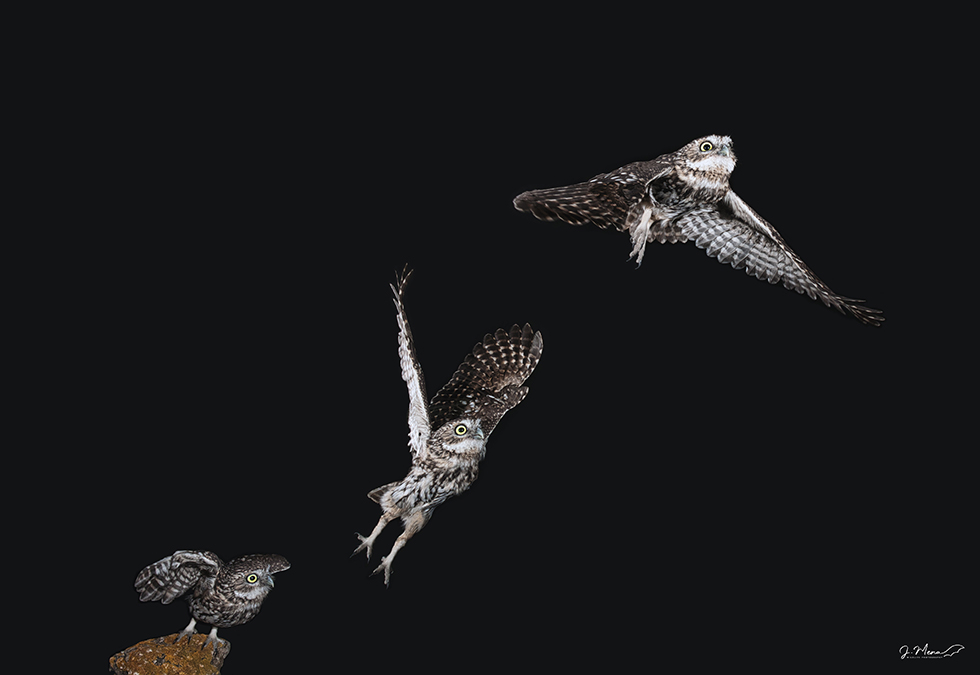
– “Quant pel desembre canta el mussol, pluja o bon sol.”
– “Què mires, què mires mussol, que no veus que sóc un rellotge de sol.”
– “Quan canta el mussol pel Gener, és que més fred ha de fer.”
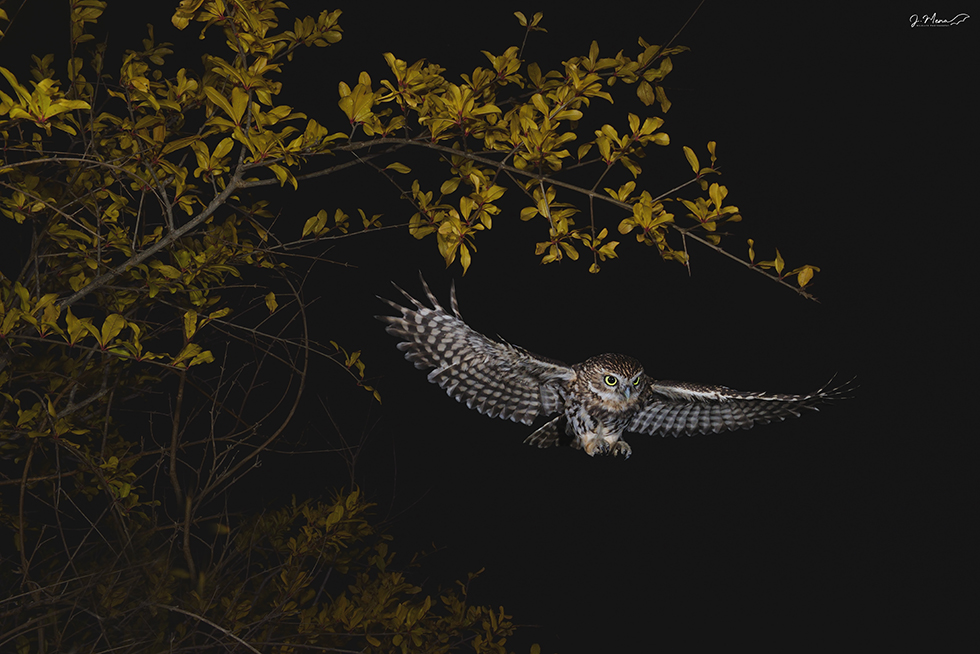
– “Quan el mussol canta al gener, un altre hivern ve.”
– “Estar tot sol com un mussol.”
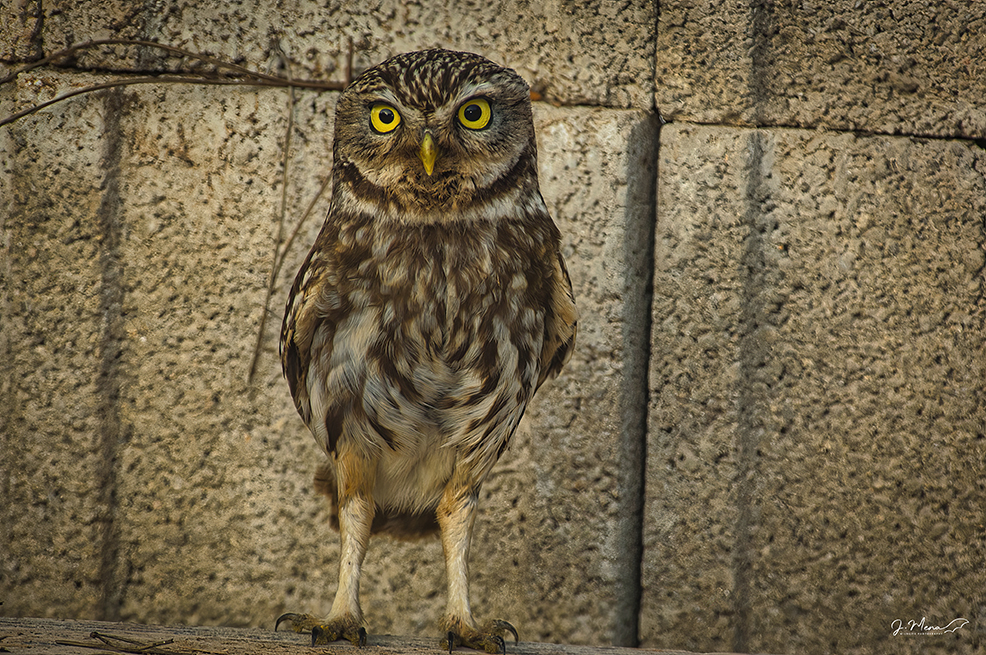
– “A casa d’En Mussol, la dona fa lo que vol.” (és diu dels homes que es deixen gobernar per les dones).
– Quan el mussol canta a la teulada o molt prop d’una casa on hi ha un malalt, este morirà.
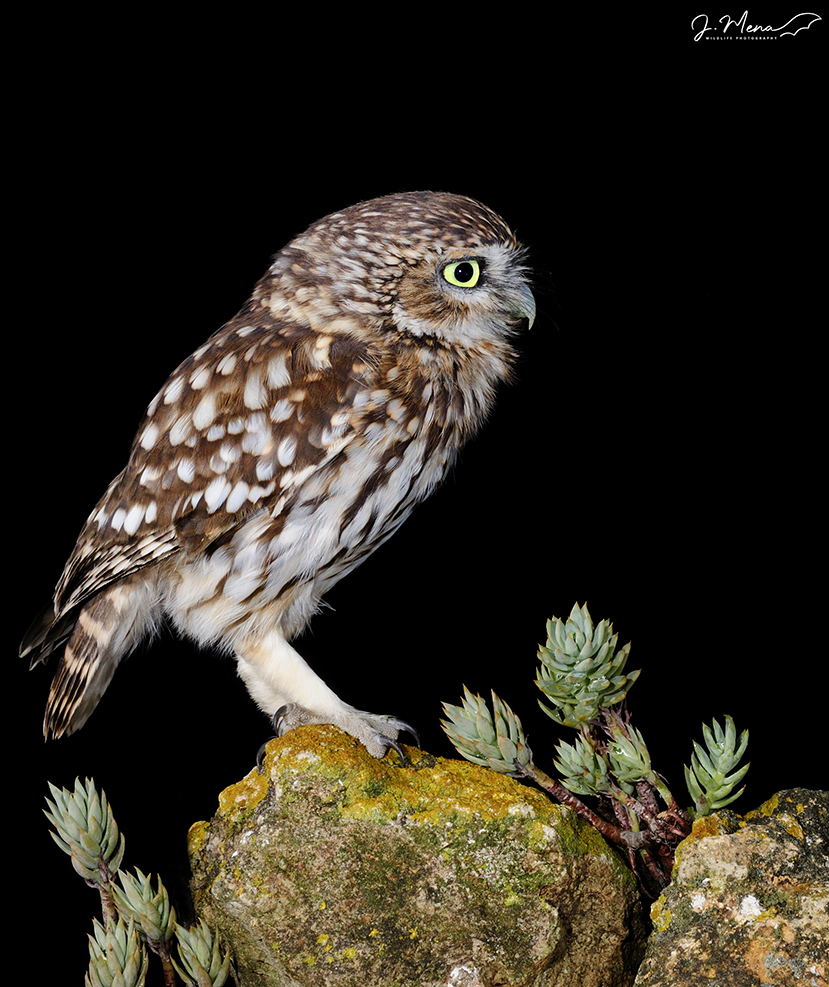
Playing his song:
